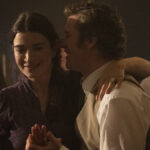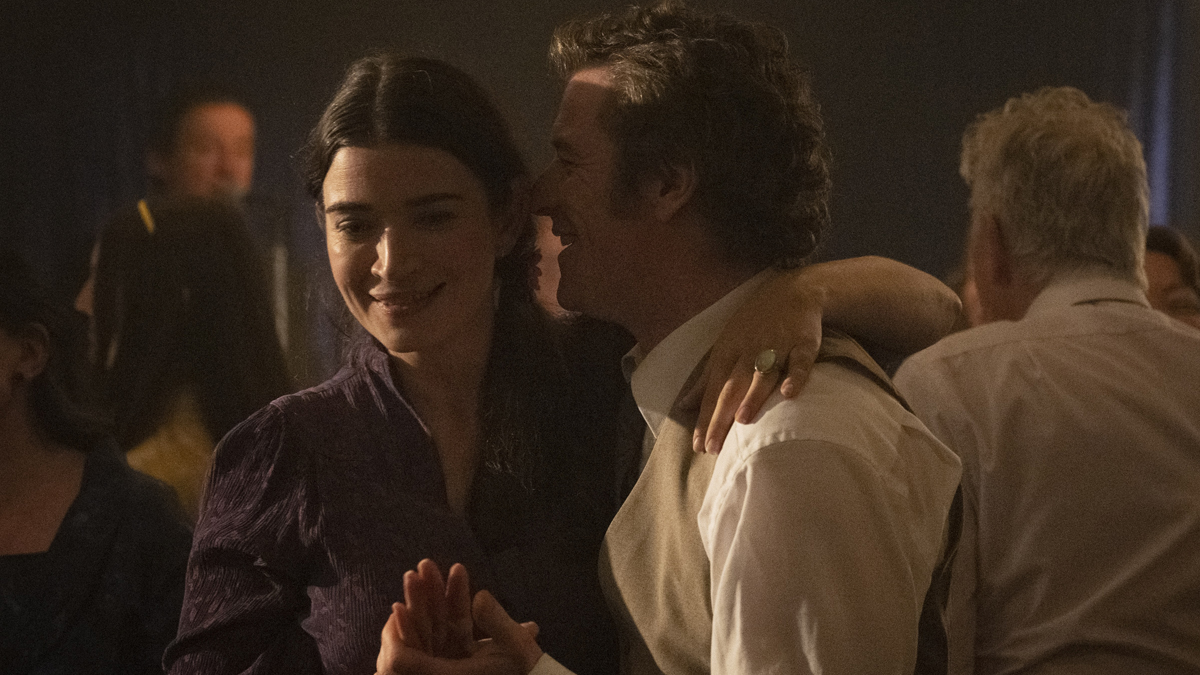The Plot: Rural Ireland, the 1980s. Joe (Barry Ward) and Kate (Anna Bederke) have returned home to the countryside following a period in London. Joe is a writer working away at a gradual pace on a novel, while Kate co-runs the art gallery that she left behind in London. Into their house occasionally step a number of visitors including neighbour Patrick (Lalor Roddy) and Johnny (Sean McGinley). As the seasons pass from one to another, Joe reflects on his community and whether his future lies here…
The Verdict: Tackling a supposedly unfilmable novel is not necessarily an impossible task for a director and his cast and crew. A novel is one thing, a film is another… but there’s a possibility of finding a middle ground between the two so that there’s a productive meeting of these different minds. That seems to have been the goal of director Pat Collins when approaching an adaptation of the late John McGahern’s last novel That They May Face The Rising Sun. Having worked mostly in quietly-observed documentaries like Henry Glassie: Field Work and the more idiosyncratic The Dance, along with a documentary on McGahern himself, Collins has taken a valiant stab at the book and rendered it into an artistic form. The result is something akin to poetry in motion with a dab of cinematic flair and a faintly rose-tinted view of rural Ireland.
The film recounts the quiet lives of a couple over the course of the seasons, not moving beyond the confines of its countryside environment (lushly filmed in Galway). The period setting is distinctive – the economic gloom of the 1980s well before the Celtic Tiger era. Emigration is a fact of life, as several characters talk about flitting back and forth to London as if it was the only other place to be. By his own admission, Collins’ script with Eamon Little condenses McGahern’s novel to remove secondary characters and sub-plots. What’s left therefore is essentially an observational piece about a couple caught between two environments and their commitments, circled by a rogues gallery of local characters who pop in for a cup of tea and a chat. At times, Joe reflects on his work-in-progress novel through internalised dialogue – taken directly from McGahern’s own novel. It’s a nice touch which adds to the overall considered atmosphere.
There’s a gentle evocation of rural community life at work in Collins’ domestic scenes, well-played by the talented Barry Ward (in a scheduling quirk, he also has Prospect House out the same day) and Anna Bederke. The supporting cast is particularly good too, bringing some liveliness and humour to what is otherwise a mostly uneventful four seasons. Admirers of Terrence Malick and slow cinema will have a field day here among the bending reeds, tweeting birds and wind rippling against the water. Not much actually happens in this film, so whatever drama there is narratively thin. Collins occasionally meanders in his direction, not quite confident enough to know what to do with it all. It ends with a cinematic shrug of the shoulders, but not enough to imbalance what came before. As pretty as it is to watch, ‘That They May Face The Rising Sun’ is a little too wrapped up in itself and its enclosed environment. Maybe that’s the point, but it’s a little too pointed. However, the sun here shines bright enough to make it a good enough portrait of rural Ireland without the seemingly obligatory paddywhackery.
Rating: 3 / 5
Review by Gareth O’Connor


In short: Shines bright
Directed by Pat Collins.
Starring Barry Ward, Anna Bederke, Ruth McCabe, Lalor Roddy, Sean McGinley.


